 Your new post is loading...
This article from CCL outlines 8 unexpected benefits of online learning they've seen in leadership training. - Improved efficiency
- Enhanced psychological safety
- Roundtable participation
- Deliberate engagement
- Practical application
- Combat of overload
- Increased cameo appearances
- Reduced environmental impacts
Peer Coaching is growing in popularity. It’s a great way for people to support each other in structured and scalable way. At Emerging World, we are increasingly integrating peer coaching approaches into our learning experiences to support positive learning outcomes, drive engagement and increase community and belonging. This is particularly valuable in an increasingly remote working world.
Two McKinsey alumni, Charles Conn and Robert McLean highlight 6 different but mutually reinforcing mindsets for problem-solving during times of high uncertainty.
This paper from Chris Watz of CCL provides some more depth to the idea that people learn and develop best through stretch and challenge - or 'heat' as it's referred to here. Some important considerations include: - Getting the level of heat right - too much and you risk burnout and disengagement. Too little and there's boredom and no learning
- How best to support learning from heat experiences - the higher the heat, the more need there is for feedback and learning support from experienced coaches
- What kinds of experiences work best for different levels of employee and different development objectives
The full paper can be downloaded here
Amy Nauiokas argues that the traditional framework for brainstorms involves identifying a problem, listing solutions within a set of parameters, and then choosing the best.
But research on creativity and innovation suggests that truly innovative solutions result not from searching for a “correct answer,” but from the collision of different ideas, perspectives and life experiences.
Rather than encouraging convergent thinking, as traditional brainstorm sessions do, the goal should be to encourage divergent thinking: the practice of finding new ways to look at a problem and generating multiple solutions. In divergent thinking, the emphasis isn’t to agree on the best idea—it’s to get as far away as possible from the most obvious answer.
Via David Hain
Letting your employees get their hands dirty while practicing a new task means they're much more likely to remember the lesson. There are a lot of different learning styles out there; not everyone is suited to listening to a lecture, then going off to perform a task or follow a procedure. Employee training is needed not only to establish expectations on tasks but to impart company goals and culture.
One way to get everyone up to speed is through experiential learning, a process where students or employees get their hands dirty while practicing a new task, then reflecting on what happened. The process has a number of advantages, including employing multiple senses and emotional connections when training, in order to create stronger memories.
This piece from Marc Rosenburg describes important considerations for truly building a learning culture inside your organization. According to Rosenburg, "A learning culture is an environment that celebrates and rewards learning, incentivises people to freely share what they know, and helps them to change based on the acquisition of new skills and knowledge. We all like to think we work in a positive learning culture, but that’s not always the case. There’s no question that learning is likely to fail if it’s poorly designed, the content is weak, or the technology doesn’t work. But learning will absolutely fail if the culture doesn’t support it. But it doesn’t have to be this way. Here are 10 key steps to building a positive learning culture in your organization: - Start with leadership. Culture begins at the top. If senior leadership doesn’t support a learning culture, no one else will.
- Expand the mission.You’re going nowhere if you simply equate learning with training. Learning—individual and organizational—is much broader than courses. Don’t make the mistake of talking “learning” but doing only “training.”
- Get buy-in from the front line. If you want employees to learn, make sure their supervisors learn first. You can’t expect them to get behind something they don’t understand themselves. B
- Get the content right.
- Get the technology right. It’s not just about making sure the technology works, but making sure it’s the right technology for the right use. Be careful the technology doesn’t get in the way of learning, or that you are not using more tech than you need.
- Ensure readiness to learn. One of the biggest factors in fostering a poor learning culture is providing learning programs to people who aren’t ready for them or who don’t need them. This can be terribly demotivating.
- Communicate for the long term.
- Provide for learning transfer. The connection between job performance and learning is a key to building a sustainable learning culture.
- Demonstrate success. Better to have a small success than a big failure. Demonstration projects, pilots, and proof-of-concept work are all essential in building support for learning.
- Measure results and provide feedback. You want to measure how much is learned, but perhaps more important from a culture perspective, you want to measure the value people attach to learning.
Learning fails when nobody cares"
The skills and capabilities required of corporate leaders today continue to evolve in an increasingly demanding environment. To be effective in supporting leaders to meet these demands organizations need to adopt innovative solutions in leadership development. Increasingly, global corporations are looking to immersive experiences as a way to enable leaders to test and develop abilities in a safe but challenging environment. Cargill is one such global organisation. They have developed ‘Leading Across Boundaries’ (LAB) an immersive experience in which senior leaders from one area of the Cargill business are partnered with another area of the business in a different geography.
Successful transformations demand new capabilities. To build them, experiential learning leverages the intimate link between knowledge and experience.
'Apparently there is no evidence that 70:20:10 works'. However, this is myth and new work from Charles Jennings & Laura Overton addressses this myth head-on . According to their new report due to be published on April 21st, those applying new models of learning such as 70:20:10 are: - 5x as likely to be able to attract talent
- 4x as likely to respond faster to business change
- 3x as likely to report improvements in staff motivation
- 2x as likely to report improvements in customer satisfaction scores
You can access the results here. Download 70+20+10=100: The Evidence Behind the Numbers from Towards Maturity. Other .70:20:10 myths in the firing line include: - The ratios of 70:20:10 are fixed. Common sense says that’s impossible and – ironic as it sounds – it really isn’t about the numbers.
- 70:20:10 is a dogmatic rule. No it’s not, it’s simply a model designed to help L&D professionals do their jobs better.
- 70:20:10 implies courses don’t work. Again not true. The 70:20:10 model looks at the most appropriate, holistic way to solve business and performance problems, and a course may be part of the solution.
- Including elements of social learning into courses is ‘doing’ 70:20:10. Just bolting on a social forum to learning isn’t really getting to the heart of what the model is all about.
- 70:20:10 is a just a way to cut costs. No – but organisations using 70:20:10 are more efficient and get better results.
Click here to edit the content
I’d like to discuss what I see our leaders of tomorrow needing. Leaders of tomorrow will not necessarily be people who rise up through the ranks of an organization, sticking to some long-held hierarchical path to achieve a pinnacle. The pace of our world frankly can’t afford the time for this kind of trajectory. The ability to see, adapt to, and even seek out change should be in the top 3 criteria for leaders, but how many leadership development and corporate mentoring programs themselves lead with how-to-change coursework?
Expertise is the result of effortful, progressive practice on authentic tasks accompanied by relevant feedback and support, with self-reflection and correction. The research team have labeled this activity “Deliberate Practice”. Others have called it deep practice and intentional practice. It entails considerable, specific, and sustained efforts to do something.
This infographic taken from Jane Hart's book Modern Workplace Learning explains that shows how learning in the modern workplace is not just about training and e-learning but is a mix of both company-organised and personal experiences.
L&D departments can no longer design, deliver and manage all learning experiences. Indeed they should not.
|
"Senior executives and managers at Qantas are to get out from behind their desks and start working as baggage handlers. The move was announced as part of a contingency program to fill the chronic vacancy gaps the airline is experiencing after it sacked 1600 baggage handlers during lockdown. The execs will be expected to work up to five days a week for the next three months. It’s not the first time that the airline has asked its leadership team to work on the front line during peak periods. But besides meeting a pressing need, the staffing shift opens an interesting debate about the benefits of leadership teams experiencing the daily life of their employees."
In this article the World Economic Forum highlights 4 major trends that it feel will help change the future if higher education. In order to make higher education more effective and inclusive it needs to adopt more active learning approaches, teach skills that will endure in a changing world, and adopting formative assessment.
In this article, Peter Cauwelier explains why Team psychological safety is key to high-performance teams. He also explains a tool he's developed to measure that safety and his experiences in using Action Learning to bring measurable improvements in psychological safety and team performance
"Over recent years, concepts like Carol Dweck’s Growth Mindset and Learning Agility have come of age, yet the opportunity to experience rich, immersive learning that stretches us outside our comfort zone eludes many." write Anita Bhasin in this call to action to provide younger people with more access to immersive and experiential learning opportunities.
This post looks into what the definition of learning 'culture' is from an anthropologist's perspective and how you can apply this to make your learning programs stronger.
The authors of this article ask', "Are we stuck in a rut? An event-based eLearning mindset? A “default to PowerPoint” design paradigm?" They argue, "the single-eLearning-course approach has helped solidify an event-based learning mindset. Event-based learning generally assumes that you hit me once with your content and then I’ve got it and am ready to go forth into the world. The reality is people need to go out and try things a few times, mess up, get feedback (if possible), and go back to the books even before they get back on the horse and try again. Building this type of structure and scaffolding into a training program moves you out of an event mindset and more into an apprenticeship model—where you’re taking people on a journey through your content—from novice to mastery. This article offers a real-life example of doing exactly that.
What’s the difference between a “training culture” and a “learning culture”? The answer is, “A great deal.” As the chart shows, in a training culture, responsibility for employee learning resides with instructors and training managers. In that kind of culture the assumption is that trainers (under the direction of a CLO) drive learning. Whereas in a learning culture, responsibility for learning resides with each employee and each team. In that kind of culture, employees are expected to seek out the knowledge and skills they need, when and where that knowledge and those skills are needed. In a training culture, the assumption is that the most important learning happens in events, such as workshops, courses, elearning programs, and conferences. In a learning culture, it’s assumed that learning happens all the time, at events but also on-the-job, through coaches and mentors, from action-learning, from smartphones and tablets, socially, and from experiments.
In this article on Chief Learning Officer, Anita Bhasin lays out the argument for why experiential learning programs in emerging markets are becoming an important leadership tool for companies. -"Making the shift from manager to business leader usually means taking an increasingly external perspective, a longer-term view, and often zooming out from a business focus to how the business fits into the community. Lots of managers in development struggle with these passages, but adult development literature shows that this transition doesn’t necessarily mean adding skills. It means making a shift in mindset to expand ways of thinking. Corporate international service learning, or CISL, programs are becoming a popular and strategic tool to address this need while delivering value for the corporation — and for global society — by creating positive social impacts in the emerging world."
Every major challenge we face, every adversity we bump into, comes with a decision—a fork in the road. These turning points, the moments when we decide which way we will go, can become touchpoints in our lives.
Ashridge recently published a study in which senior business leaders were interviewed to understand what kinds of experiences had shaped their leadership practices. The particular focus was on responsible leadership, which has been gaining much more attention in recent years. Through the interviews, several key themes repeatedly emerged as having been influential in the development of senior leaders' responsible leadership behaviour: - First-hand experiences of pressing social challenges, relationships with people experiencing them and with the people and organisations working effectively to help address them.
- Early career experience in organisations with a strongly-held culture and values of responsible and sustainable business.
- Exposure to senior leaders with a passion for this kind of business leadership who act as role-models or mentors.
- Support to reflect on and make sense of these kinds of experiences and how to act on them in business leadership roles.
The participants in this research had all taken part in Business in the Community's Seeiing is Believing program - an initiative in which senior leaders learn first-hand about issues such as alcoholism, homelessness, ex-offenders, youth unemployment and the low carbon economy by going out as a group and meeting people who are affected by these issues, subsequently reflecng on the experience and then reporting on the experience and what it means to the Prince of Wales.
In the modern workplace jobs are more complex and demand greater cognitive skill. This challenges us to consider how we can better support the full novice to expert journey, embed learning and practice in the job, design experience to include practice and reflection, build tacit knowledge, and design rich feedback. Fortunately, we have a number of approaches available to us that align well to the conditions of deliberate practice.
We all know well-designed practice is a critical for effective training. It’s what differentiates meaningful learning from passive information presentation. But as work becomes more complex and knowledge-based, are the practice activities we design for our formal learning programs (both classroom and e-learning) enough to meet the need for expertise in the modern workplace? A comprehensive body of research on how professional expertise is developed suggests it may not be.
|
 Your new post is loading...
Your new post is loading...






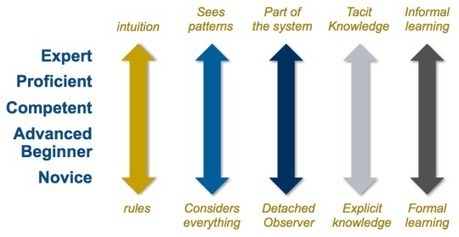



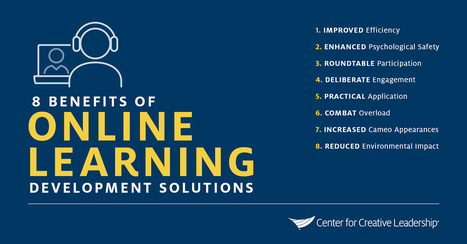


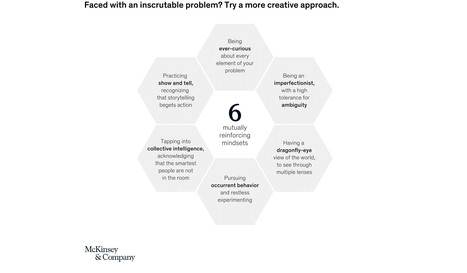

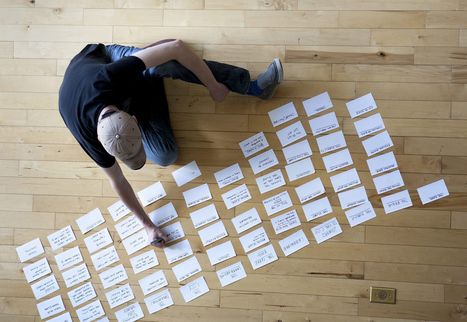
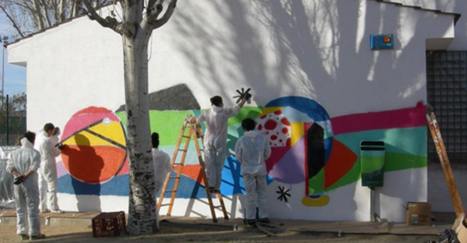
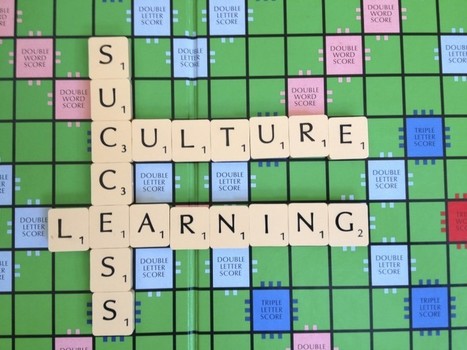
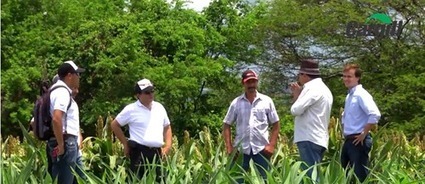



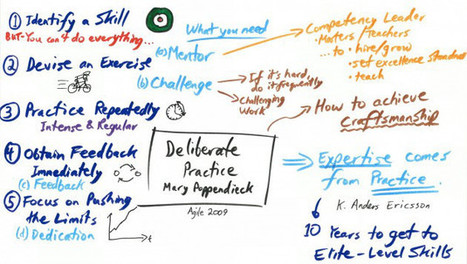



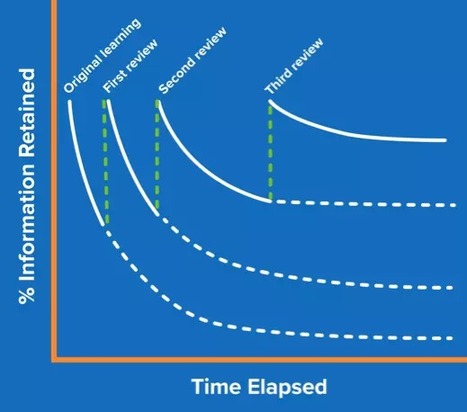



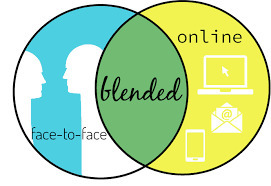
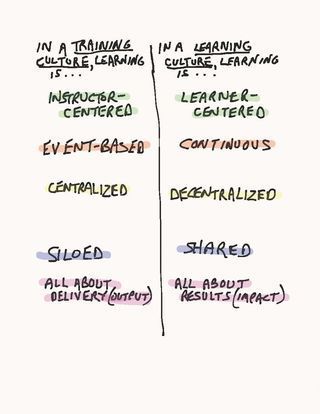


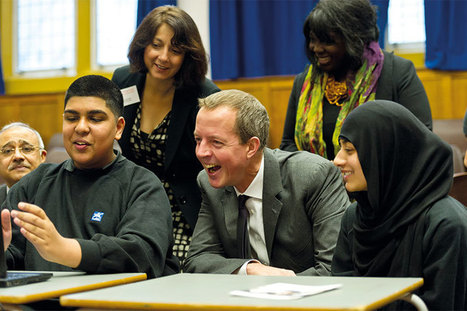
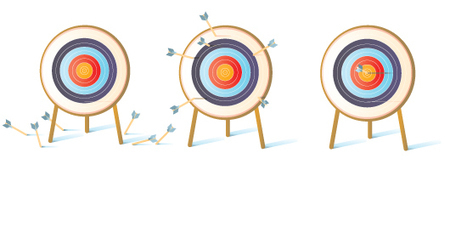





This is the first in a three-part blog series on Practice and the Development of Expertise. In part one, author, Tom Gram, outlines how top performing individuals at work, besides being very good at what they do, consistently demonstrate enhanced abilities compared to novices and lower performing individuals. The development of these enhanced abilities, he argues requires more intensive and “deliberate” practice than previously thought. The research he summarises navigates us away from event based formal learning to approaches that could be categorized as informal learning or learning from experience.
The expertise developed by informal, or experiential learning, as described in this article certainly align with the requirements of our increasingly complex and interconnected world. Abilities such as pattern perception, using personal networks more effectively, better self-monitoring all support the agility leaders need to succeed in our ever fluctuating buiness landscape.